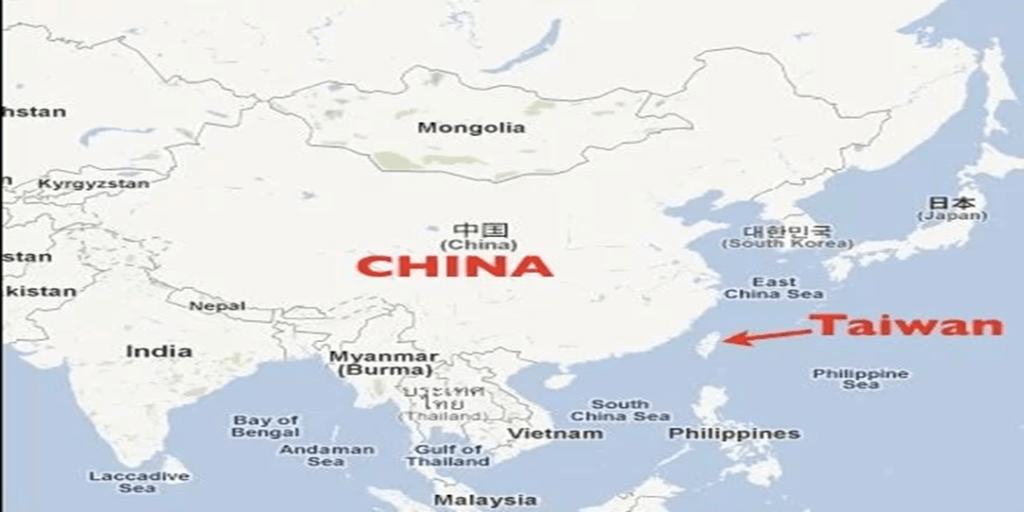China and Honduras recently signed an agreement to establish diplomatic relations after Honduras ended its diplomatic ties with Taiwan. Currently, only 13 countries recognize Taiwan as a sovereign state. This move by Honduras reflects China’s One China policy, which considers Taiwan to be a renegade province.
What is the One China policy?
The One China policy refers to the idea that there is only one China, consisting of mainland China and Taiwan. This policy dates back to 1949 when the Communist Party won the Chinese civil war and the nationalist Kuomintang fled to Taiwan and set up the government of the Republic of China. Both sides claimed to be the legitimate government of China, and for many years, Taiwan was recognized as such by much of the international community.
Major issues between China and Taiwan
There are several major issues between China and Taiwan, including sovereignty, political differences, military threats, economic competition, diplomatic recognition, Taiwan’s international status, and cross-strait relations.
Sovereignty: China considers Taiwan to be a renegade province that must eventually be reunified with the mainland. However, Taiwan has its own government, military, and economy and considers itself a sovereign state.
Political Differences: Taiwan is a democratic country, while China is a one-party communist state. The differences in political ideology have contributed to tensions between the two countries.
Military Threats: China has not ruled out the use of force to reunify with Taiwan and has conducted military exercises near the Taiwan Strait in the past, which have increased tensions between the two sides.
Economic Competition: Both China and Taiwan are economic powerhouses, and there is significant competition between the two in terms of trade and investment.
Diplomatic Recognition: China has been using its diplomatic clout to isolate Taiwan by convincing other countries to cut ties with Taiwan and recognize China instead.
Taiwan’s International Status: Taiwan is not recognized as a sovereign state by the United Nations and is unable to join international organizations.
Cross-Strait Relations: There are also a number of other issues that affect cross-strait relations, including Taiwan’s relationship with the United States, Taiwan’s national identity, and the possibility of a peaceful reunification.

Diplomatic Status of Taiwan
The United Nations officially recognizes the People’s Republic of China as the only legitimate representative of China, including Taiwan. As a result, Taiwan is not a member of the UN and has no representation in most UN specialized agencies.
The United States recognizes the PRC as the sole legitimate government of China but also maintains unofficial ties with Taiwan. This delicate balancing act has become increasingly difficult in recent years as tensions between China and the US have risen.
India officially recognizes the One China policy and maintains diplomatic relations with the PRC. However, India maintains unofficial and non-governmental contacts with Taiwan, including business, cultural, and people-to-people exchanges. India recognizes the importance of Taiwan as a vibrant democracy and an important economic partner.
Why In News
Recently, China has been ramping up its efforts to increase its diplomatic clout around the world, especially in regions where Taiwan has established relations. The move by Honduras to cut ties with Taiwan and establish diplomatic relations with China marks a significant victory for China’s “One China” policy.
MCQs on One China Policy and the Diplomatic Status of Taiwan
-
What is the “One China” policy?
A. It is a policy that recognizes Taiwan as a sovereign state.
B. It is a policy that recognizes China and Taiwan as two separate countries.
C. It is a policy that considers Taiwan as a renegade province that must eventually be reunified with China.
D. It is a policy that recognizes both China and Taiwan as independent countries.
-
Which country has been using its diplomatic influence to isolate Taiwan by convincing other countries to cut ties with Taiwan and recognize China instead?
A. India
B. United States
C. China
D. Honduras
-
What is India’s stand on the One China policy?
A. India does not recognize the One China policy.
B. India officially recognizes Taiwan as a sovereign state.
C. India officially recognizes the One China policy and maintains diplomatic relations with the People’s Republic of China.
D. India has not taken a clear stand on the One China policy.
Boost up your confidence by appearing our Weekly Current Affairs Multiple Choice Questions
![]()


